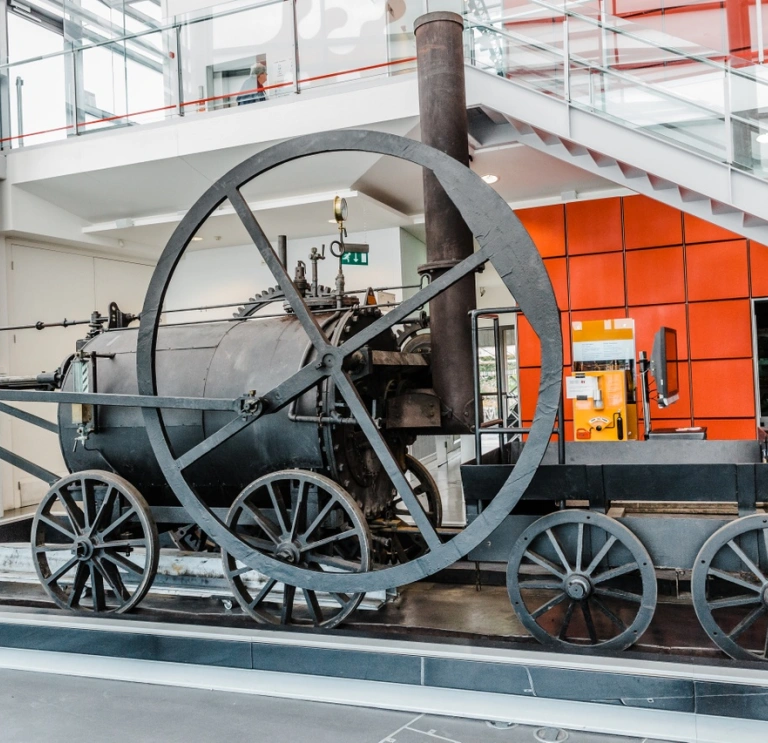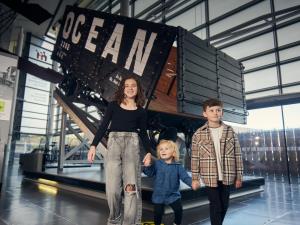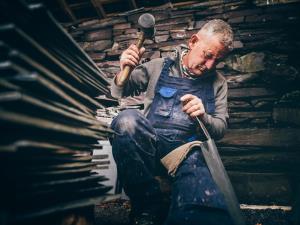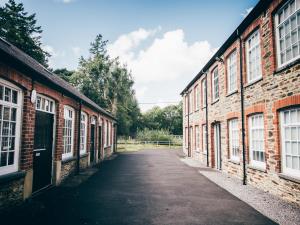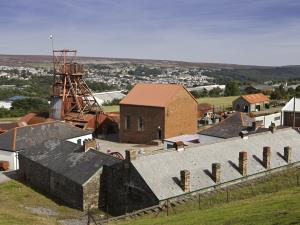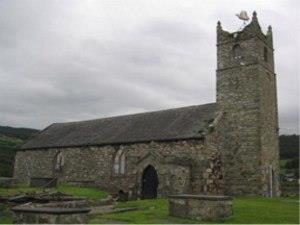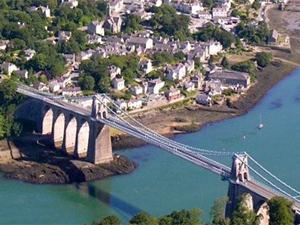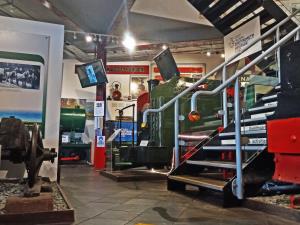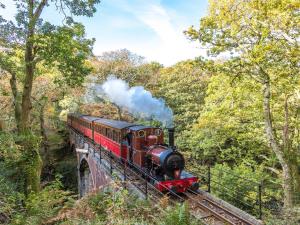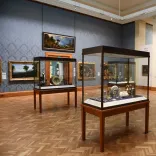National Museums
While all of our National Museums tell the story of Wales and the world, four specialise in different areas of our unique industrial heritage.
The National Waterfront Museum in Swansea tells the inspiring story of Welsh industrial, maritime and transport history. Many of the displays are interactive and the exhibitions change regularly. The museum’s events list includes film showings, talks and family craft activities. If you need a break from exploring, there’s a coffee shop to grab a bite to eat and relax.


Slate was one of the biggest industries in North Wales, employing thousands of people at the height of production in the 1800s. Welsh slate was exported all over the world because of its quality. Discover all about the quarries, the workers and the local communities at the National Slate Museum in Llanberis, when the museum re-opens in 2026 following a massive redevelopment. Look out for 'pop up slate museum' events in the local community in the meantime.
The Slate Landscape of Northwest Wales become Wales’ fourth UNESCO World Heritage site in 2021. It covers several fascinating industrial heritage sites across North Wales, including quarries, mines and heritage railways. The 83-mile Snowdonia Slate Trail is a great way to explore parts of the region and discover more about the history and legacy of our slate industry.
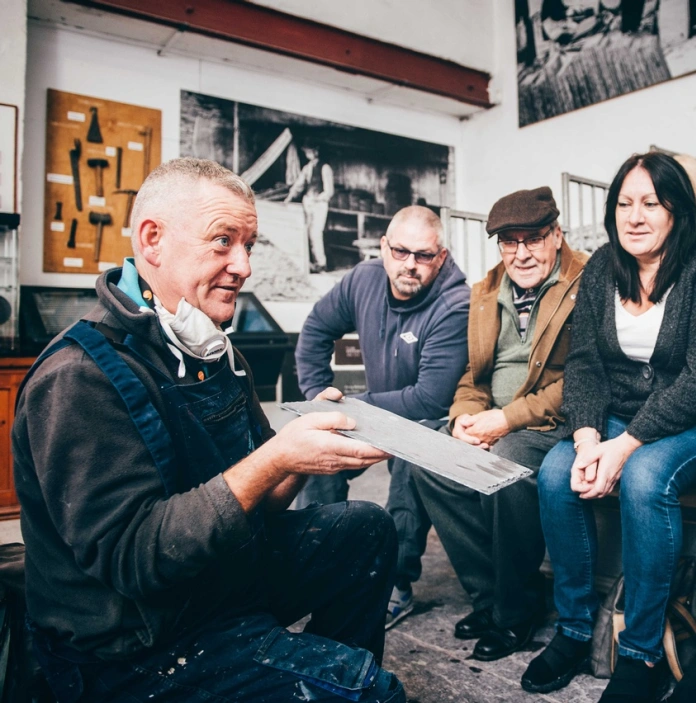
Dre-fach Felindre is in the heart of rural Carmarthenshire. Surrounded by beautiful countryside, it’s now hard to imagine the hustle and bustle of the woollen mills which used to dominate the land. Welsh wool was made into traditional Welsh blankets, cloth and flannel, and exported all over the world. Based in the historic former Cambrian Mills, the National Wool Museum has working looms and holds regular demonstrations as well as hosting local craft group events.
Big Pit National Coal Museum is an essential part of the Blaenavon Industrial Landscape UNESCO World Heritage Site experience. A visit here is a day out in itself as you can explore the pithead baths, view the mining galleries exhibitions and have a brew and a bite to eat in the old canteen overlooking Blaenavon. The highlight is the underground mine tour; led by an experienced former miner, you can find out what it was like to work as a coal miner through the ages.

Llŷn Maritime Museum and Heritage Centre
A ‘Hidden Gem’ award winner, the Llŷn Maritime Museum is based in a converted church in Nefyn on the Llŷn Peninsula. It’s a great place for families to explore the Llŷn’s maritime heritage – artefacts from local shipwrecks, shipbuilding tools and lots of model ships to look at. The museum also holds regular exhibitions and has many paintings, postcards and photos on display. There’s also a lovely coffee shop inside, perfect for an afternoon out.
Menai Heritage - The Menai Bridges Exhibition
Two of the bridges across the Menai Strait are Victorian engineering marvels. Thomas Telford (Menai Suspension Bridge) and Robert Stephenson (Britannia Railway Bridge) developed new designs and techniques to cross the dangerous Menai Strait, revolutionising travel and trade with Ireland. At the Menai Heritage Centre, visitors can walk under or over the suspension bridge, discover how the bridges were built and try building their own bridges. Perfect for budding engineers to use their imaginations!

Holyhead Maritime Museum
Holyhead Maritime Museum is based in the old lifeboat station at Newry Beach, Holyhead. The museum explores the rich maritime history of Holyhead port, with info on shipwrecks, the heroic local lifeboatmen and sailing the Irish Sea. There's plenty to do for families with a museum quiz and model boats to look at. Check out the well-stocked shop full of specialist books and sea-related gifts, and the Harbourfront Bistro next door for food.
Porthmadog Maritime Museum
The Porthmadog Maritime Museum is appropriately housed in the last remaining slate shed on the harbour. Porthmadog has a long and fascinating seafaring history; the harbour was a key port for exporting our top quality Welsh slate all over the world. The slate travelled down from the quarries of Blaenau Ffestiniog via the nearby Ffestiniog Railway – at first by gravity run slate trains then by steam power. Here you can find out what Porthmadog owes to the sea – the shipbuilding, the communities and shipping slate around the world.

Barmouth Sailors’ Institute
If you fancy a break from the hustle and bustle of Barmouth seafront, pop into this lovely little building and find out about Barmouth’s seaside story. Originally, the Barmouth Sailors’ Institute was a place for sailors to relax while on shore. There was a reading room and a billiards room, plus maps for families to trace their relatives travelling around the world on long voyages. No online maps or GPS tracking in those days! Now restored, it also shows the social history of Barmouth through photos and artefacts.

Narrow Gauge Railway Museum, Tywyn
Wales has its fair share of narrow gauge railways, many of which are still running today, having been rescued and preserved. The Narrow Gauge Railway Museum is based in Tywyn, home of the world’s first preserved railway, the Talyllyn Railway. Around 200 years of British narrow gauge history is here – from track building to signalling, tickets to engines. There are plenty of interactive displays and events for the whole family to enjoy, including Fletcher Jennings loco 'William Finlay' - a static steam engine to clamber into the cab and ‘drive’! Thomas the Tank Engine fans will love the re-creation of the study used by the Reverend Wilbert Awdry.
Milford Haven Heritage & Maritime Museum
Milford Haven wasn’t always about huge ships and oil refineries. Visit the Old Custom House, home of the Milford Haven Heritage and Maritime Museum, to discover the history of the town from the Bronze Age to their whaling and fishing industries.

